
A Global Food Crisis
WFP's Partnership with the EU
In 2023, support from the EU remained stable and consistent. The EU was WFP’s third-largest donor for the third year in a row, and contributed €465 million to the organisation. While the majority of EU funding targeted life-saving humanitarian activities, the EU also contributed to WFP’s life-changing work around the world.

The European Commission’s Directorate-General for European Civil Protection and Humanitarian Aid Operations (DG ECHO) is WFP's primary partner in the EU, representing more than 80% of the funding received from EU institutions in 2023. This support allowed WFP to address the world’s worst emergencies, helping us reach those affected by conflict, climate change and other crisis in places like Yemen, Palestine, Haiti, Sudan and the Sahel region.
Thanks to support from the European Commission’s Directorate-General for International Partnerships (DG INTPA), WFP worked to address the root causes of hunger. Together, we provided communities around the globe with sustainable and long-term solutions to lift them out of hunger and poverty in places like Madagascar, Zambia, Malawi and Afghanistan.
Together with the European Commission’s Directorate-General for Neighbourhood and Enlargement Negotiations (DG NEAR), WFP helped strengthen national social safety nets in countries like Lebanon, allowing us to provide cash assistance to both vulnerable refugees and impoverished host communities.
Funding from the European Commission’s Service for Foreign Policy Instruments (FPI) continued to help WFP implement a triple-nexus approach in Burkina Faso and Niger, where projects address not only hunger and malnutrition, but also build resilience and protect livelihoods, and invest in peace by strengthening social cohesion.
Across the EU
In addition to working with the European Commission to fight hunger around the globe, WFP has also developed strong partnerships with the other EU institutions in Brussels, particularly the European Parliament, the Council of the European Union and the European Union External Action Service (EEAS).
WFP, FAO and the EU are also the founding members of the Global Network Against Food Crises, which every year publishes an annual report — called The Global Report on Food Crises — with the latest numbers on people facing acute hunger and malnutrition in crisis-prone countries. Hunger data in this publication is drawn from that report.
WFP also worked closely with the EU at high-level pledging conferences during the year, including the Brussels Syria Conference, as well as high-level dialogues and events, such as the European Humanitarian Forum. WFP also held frequent briefings for EU Member States through the Council’s working parties on humanitarian and development aid, as well as with members of the European Parliament and Parliamentary Committees, such as the Committee on Development.

EMERGENCY RESPONSE
PALESTINE
Following the outbreak of war in early October 2023, the humanitarian situation in Gaza deteriorated rapidly. Food and water were running out, shelters were overcrowded and with no fuel there was no electricity. By December, more than half a million people faced Catastrophe levels of hunger. While access was constrained, WFP still managed to reach 799,000 people by November 2023 thanks to donors like the EU.
UKRAINE
One in five Ukrainian families faced food insecurity in 2023, mainly concentrated in areas close to the conflict zones and frontline areas, where around 80% of WFP’s assistance was distributed. Through collaboration with local farmers and markets, WFP has been helping to stabilize the economy while providing aid. Since March 2022, thanks to the EU and local partners, WFP has provided aid equivalent to 2.5 billion meals to families affected by the war.
YEMEN
Eight years of conflict have left millions of Yemenis with little to no food to eat. Even before the fighting broke out, Yemen was one of the poorest countries in the Arab world. In 2023, thanks to continued support from donors like the EU, WFP reached 13.2 million people nationwide with life-saving assistance, with the exception of the Sana'a-based authority-controlled areas where food distributions were stopped due to funding shortfalls.
Afghanistan
In 2023, hunger affected one-third of the Afghan population. Due to funding shortfalls, WFP had to halt operations in 150 districts, impacting 10 million people and leading to a surge in life-threatening malnutrition, especially among hundreds of thousands of children. However, with the support from donors like the EU, WFP still managed to assist 17.2 million people from January to September 2023, including 8.6 million women and girls, and 9.9 million children.
Nigeria
Conflict, insecurity, inflation and climate extremes were the main drivers of hunger in Nigeria in 2023. Around 25 million people faced hunger, with 4.3 million people affected by the June-August lean season, a significant increase from the 4.1 million in 2022. Working together with the EU, WFP assisted 2.1 million vulnerable people in the country throughout 2023 through food and nutrition support, cash payments, and livelihoods projects.
Syria
People in Syria have endured over a decade of conflict. Combined with economic and climate shocks, along with the more recent earthquakes in February 2023, many families were left with next to nothing. At the end of the year, WFP was forced to end its biggest food assistance programme due to funding shortfalls, affecting the 3.2 million people WFP had been reaching during the second half of the year thanks to our donors like the EU. Nevertheless, WFP remains committed to the 12.9 million people that are estimated to be hungry in 2024.
Sudan CRISIS
The unrelenting conflict in Sudan risks triggering the world’s largest hunger crisis. Millions of children and families have been forced to flee in fear for their lives. Some have been displaced multiple times — with many being forced across borders into countries such as Chad and South Sudan — becoming more vulnerable and food insecure with each displacement. This increases needs even further, and creates the potential for further destabilisation in the region. Thanks to donors like the EU, WFP has been providing life-saving assistance to those most in need in Sudan as well as those who have fled to the neighbouring countries. In Sudan alone, WFP reached 8 million people in 2023.
HORN OF AFRICA
In 2023, millions of people in the Horn of Africa were trapped in a hunger emergency as the region suffered crisis after crisis. Following nearly three years of drought, more than 23 million people in Ethiopia, Kenya and Somalia faced acute hunger. This led WFP and its partners, like the EU, to scale up assistance in the region, which helped keep famine at bay. However, due to funding constraints, the threat of famine looms once again. WFP was forced to scale down its assistance, leaving over 3 million people at risk of most severe levels of food insecurity.
TüRKIYE
Families and communities in Türkiye endured unimaginable hardships after the earthquakes in February 2023. A total of 18 million people were affected. Funding from the international donor community — including the EU and its member states — enabled WFP to react swiftly and provide emergency food assistance to 2.7 million people through hot meals, ready-to-eat food packages, and family food rations.

Forgotten Crises
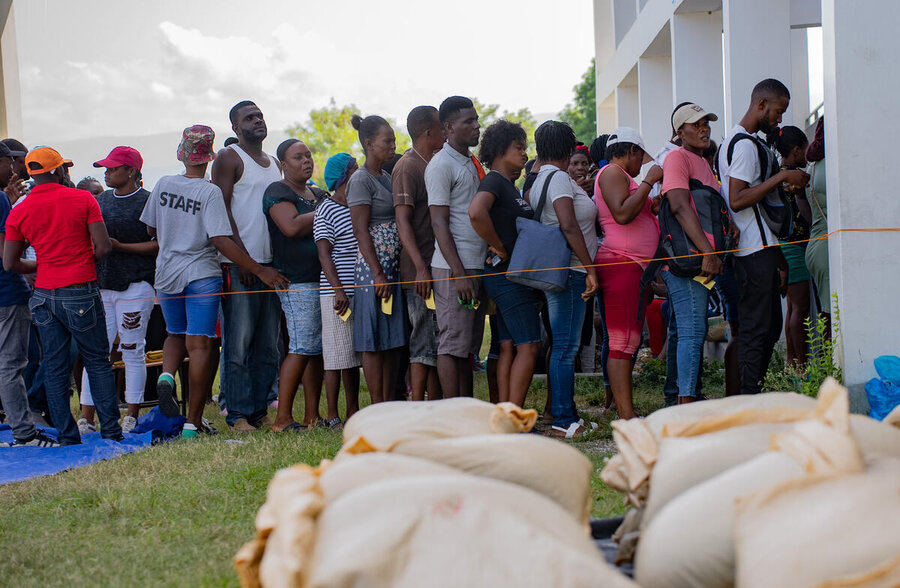
Haiti
Haiti’s humanitarian crisis escalated at a worrying pace in 2023. Acute hunger persisted, with more than one-in-three Haitians facing food insecurity. Despite funding cuts that forced WFP to slash the number of people it assisted, support from donors like the EU helped us reach almost two million vulnerable people in the country with life-saving food assistance.
Democratic Republic of the congo
In 2023, a surge of violence once again pushed people out of their homes in the Democratic Republic of the Congo (DRC). For many, this was not the first time they had to flee. A quarter of the entire population — equivalent to over 25 million people — continued to face severe food insecurity. Despite funding constraints, WFP managed to reach 4.4 million people thanks to the support from donors like the EU.
Bangladesh
The seventh year into their exodus from Myanmar, Rohingya refugees in Bangladesh continued to face crisis on top of crisis. Repeated climate shocks and diminishing donor funding, followed by drastic ration cuts, pushed many deeper into hunger. Many families were forced to take desperate measures to cope, while exposed to high risks of violence, abuse, and exploitation. Thankfully, WFP, with support from the EU, managed to provide food assistance to 960,000 people living in the refugee camps.
Algeria
Algeria has been hosting refugees from Western Sahara since 1975. Living in camps in the harsh and isolated desert environment, their opportunities for self-reliance are limited and have forced them to rely on humanitarian assistance. The EU has remained committed to helping the Sahrawi refugee community, and in 2023 signed the first multi-year contract with WFP in support of our operations in the country. As a result, WFP remained the main regular and reliable source of food for the Sahrawi refugees, assisting more than 130,000 vulnerable people in December of last year alone.
Fragility and Peace
It is against this backdrop that the EU’s Service for Foreign Policy Instruments (FPI) funded WFP in Burkina Faso and Niger with the specific aim of building social cohesion through food security and nutrition projects.
Throughout 2023, by bringing together internally displaced people, refugees and host communities in resilience programmes in both countries — these include land restoration, building community gardens, and improving access to nutritious food and quality education — WFP strengthened not only the communities’ food security but also the social cohesion between them.

Climate Crisis
Madagascar
In 2023, development prospects in Madagascar continued to be hampered by the country’s low growth potential and exposure to frequent natural disasters, including cyclones, floods, and droughts. As part of the disaster response, WFP, using funds from the EU, began to provide in-kind and cash assistance in districts facing high levels of food insecurity due to climate shocks — in November 2023 alone, WFP supported over half a million people.
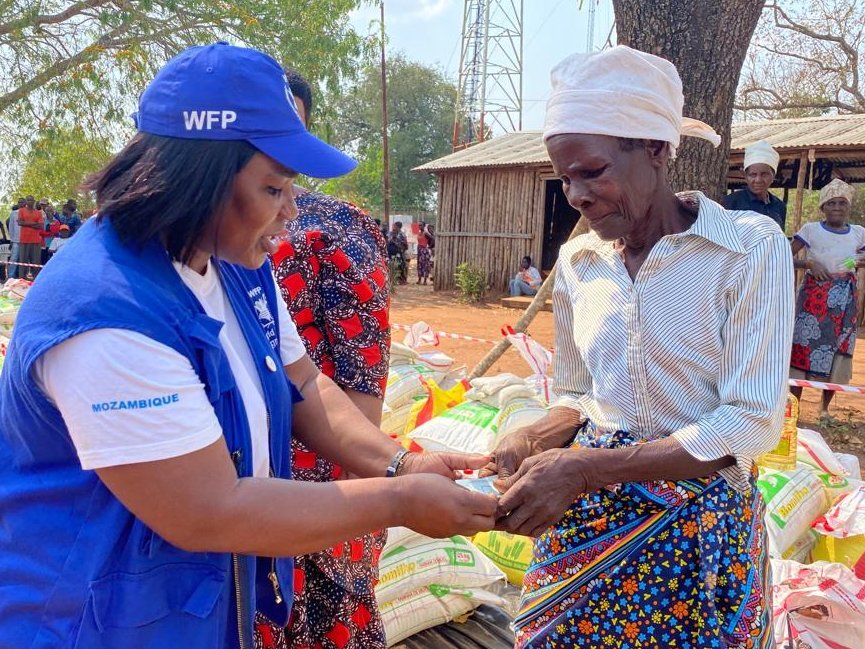
MOZAMBIQUE
Mozambique is classified as one of the most disaster-prone countries in the word. Tropical cyclones, intense floodings, storms and droughts have all contributed to the prevalence of acute food insecurity in the country. By December 2023, WFP had reached 160,000 people recovering from Cyclone Freddy, as well as provided almost 10,000 agricultural tools to smallholder farmers to strengthen local climate resilience, all thanks to support from donors like the EU.
Guatemala
Guatemala is among the countries most vulnerable to climate change and most exposed to natural hazards. In 2023, WFP and the EU supported drought and flood-affected smallholder producers to help them cope with the lean, rainy, and hurricane seasons. By restoring, building, and diversifying their livelihoods, WFP supported more than 18,000 smallholder farmers and helped them increase their access to and participation in the local market.
Burundi
In 2023, recurring natural disasters in Burundi led to massive internal displacements and impacted the livelihoods of many rural communities heavily dependent on subsistence farming. Inflation, combined with disruptions in trade and market supply, further exacerbated food insecurity in the country. By September, 15% of the population faced acute hunger. In efforts to prevent famine, WFP and the EU stepped up and provided food and nutrition assistance to almost 900,000 people in need.

Nutrition Support
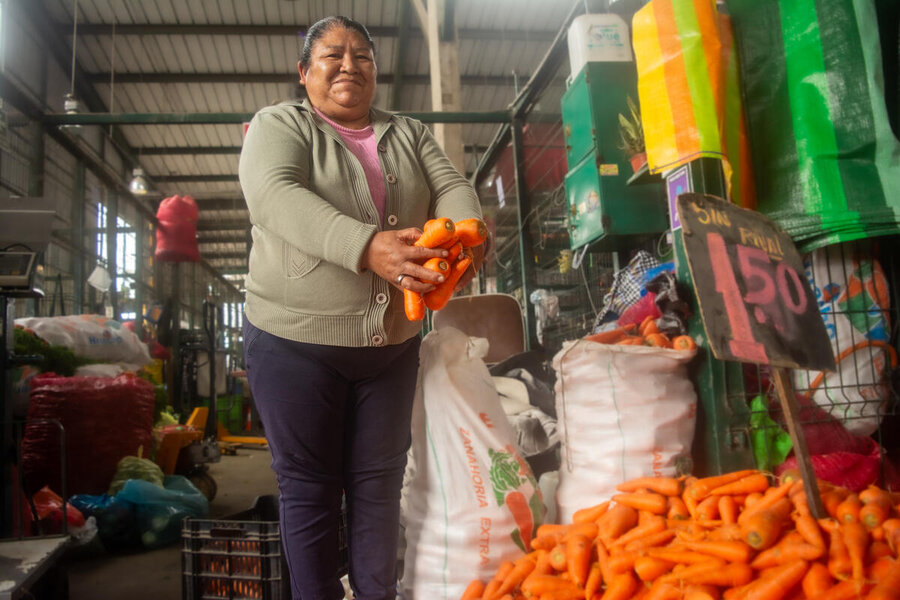
PERU
In 2023, WFP continued to improve the nutrition of various communities in Peru. Together with the EU, WFP contributed to enhancing dietary practices and delivered ready-to-use food to prevent and treat malnutrition. Thanks to our donors and our partners, WFP was able to screen over 3,200 children between 6-59 months old and provide nutritional counselling to parents as well as necessary supplements.
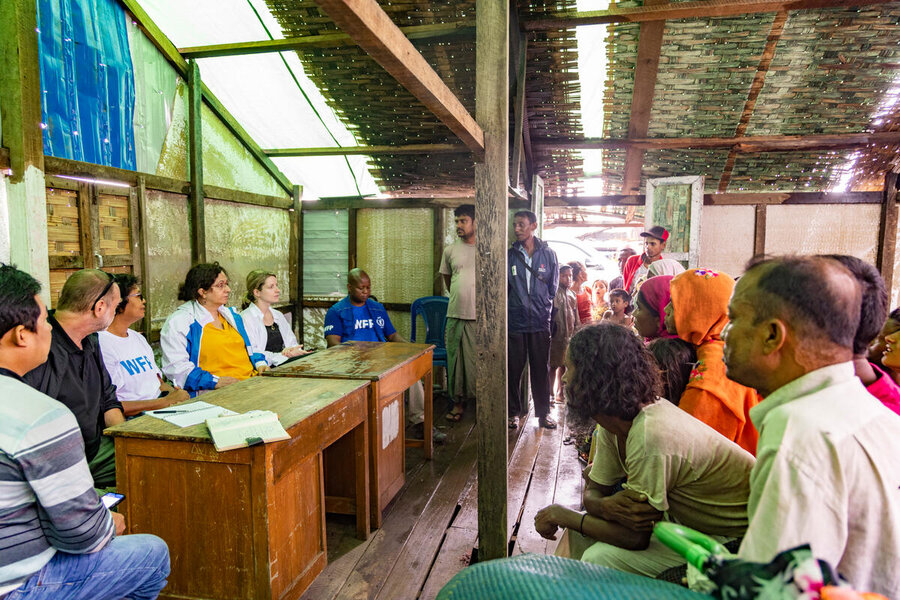
MYANMAR
In Myanmar, over 130,000 pregnant and breastfeeding women and young children between six months and five years old received nutrition support from WFP in 2023. Improving nutrition in Myanmar was made possible thanks to EU funding, which supported activities to prevent wasting and stunting. The funds also allowed WFP to inform local communities about nutrition and best practices, and to provide counselling to beneficiaries when needed.
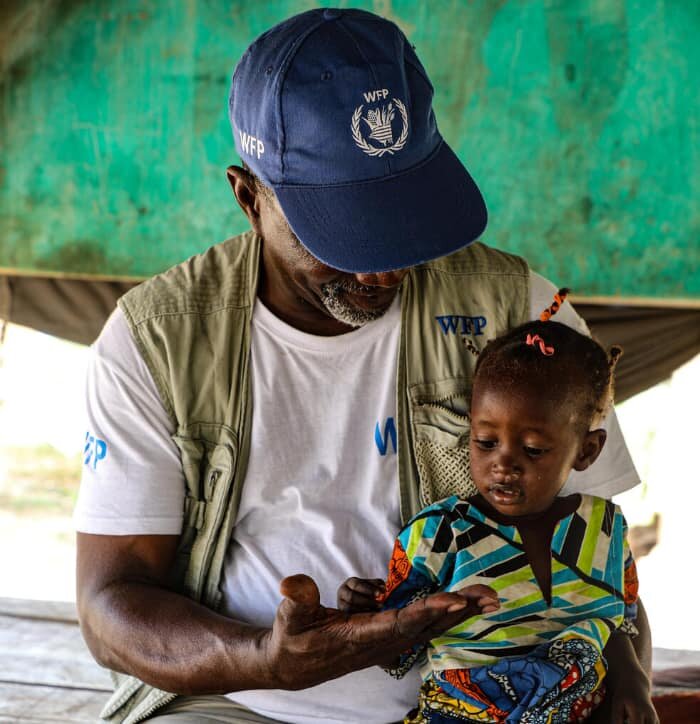
MAURITANIA
In 2023, thanks to support from donors like the EU, WFP employed a two-tier nutrition approach that focused both on malnutrition treatment and prevention activities. Nutrition campaigns informed beneficiaries about good dietary practices and nutritious foods, while the cash assistance they receive allows them to buy the food they need to provide healthy and nutritious meals for their families. As a result, the percentage of children under two years old in Mauritania that now meet the minimum nutritional requirements increased by 160%.
SYRIA
WFP’s nutrition programme in Syria, which aims to prevent and fight malnutrition, supported over 300,000 pregnant and breastfeeding women, plus girls and children aged 6 months to 2 years across all 14 governorates in 2023. Thanks to funding from donors like the EU, our beneficiaries received supplementary food and value vouchers to diversify diets and improve nutrition, as well as nutrition supplements.

School Feeding
AFGHANISTAN
Afghanistan is still reeling from the impact of a series of devastating earthquakes, economic struggles, political complexities, and a surge in returnee refugees and internal displacement. In 2023, millions of people faced hunger and struggled to put food on the table. Supported by the EU, WFP continued to provide Afghan schools with high energy biscuits and fortified meals, helping over 700,000 students through its school meals programmes.
MALAWI
Funding from the EU has helped WFP’s school feeding programmes in Malawi reach almost 670,000 school-going children in over 540 schools in 2023. Thanks to our donors, WFP provides students with nutritious meals each day. These meals consist of fresh foods bought from local smallholder farmers, as part of WFP's home-grown school feeding programme. WFP also worked with the Government to increase technical capacity and promote healthy eating habits in schools.
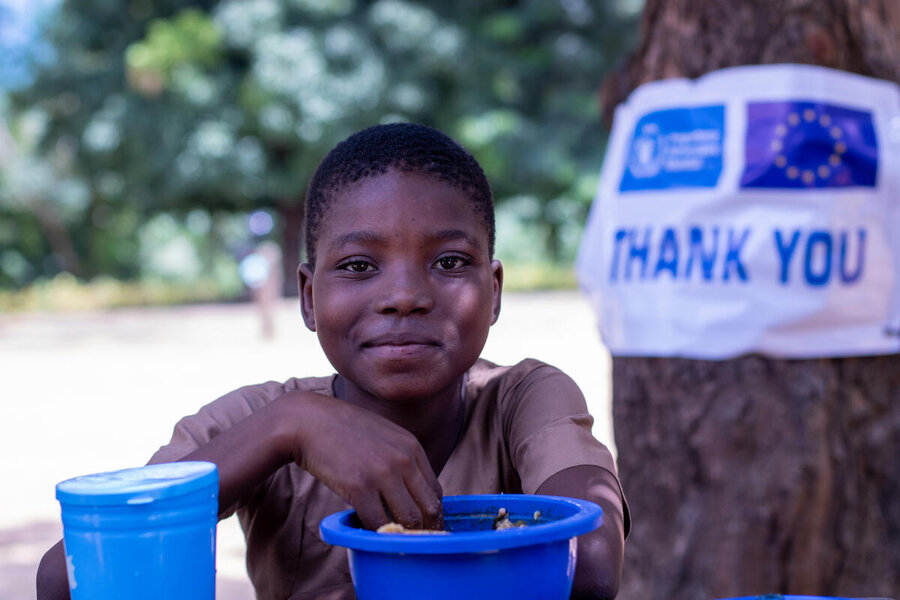
TOGO
In Togo, WFP supports the National School Feeding policy by helping the government develop technical guidelines for school menus based on local food production. Growing produce in school gardens makes for a more varied and nutritious diet. In 2023, thanks to funding from the EU, WFP supported fifty schools through these home-grown school feeding (HGSF) programmes, which provided hot meals to over 16,200 primary students.
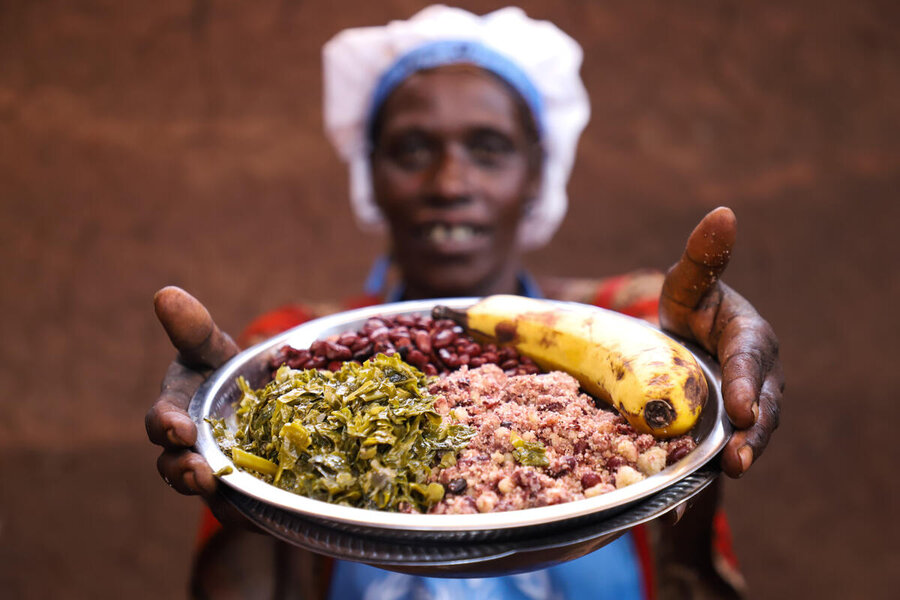
ETHIOPIA
In 2023, WFP scaled up its school meals programme in Ethiopia, reaching over 370,000 school-going children. By improving local initiatives such as producing grains, pulses, vegetable oil, and salt for school meals, WFP was able to assist a higher number of vulnerable children. This not only filled more empty stomachs but also increased income for smallholder farmers and boosted the local economy.

Social Protection
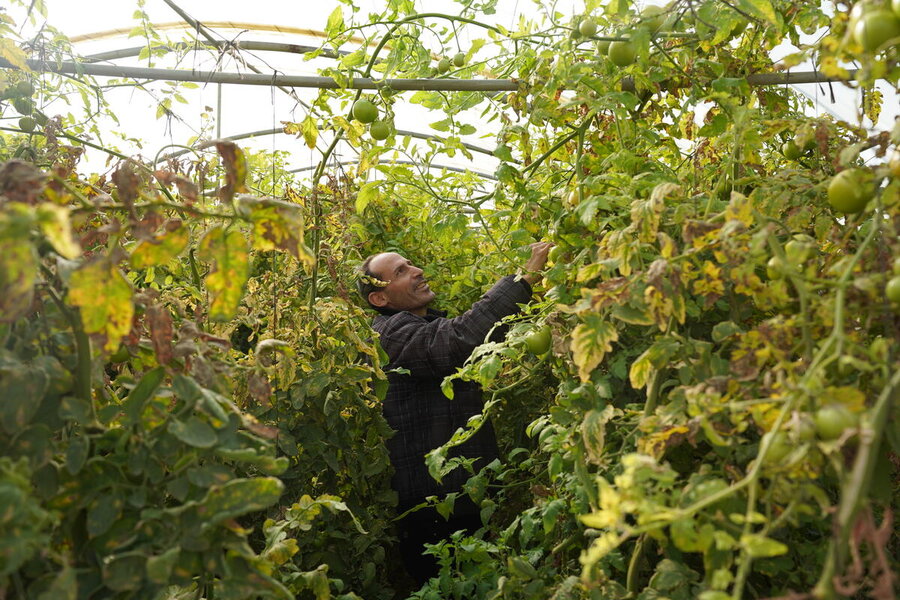
LEBANON
Despite positive developments, Lebanon continued to face a deep socioeconomic and political crisis in 2023. With the EU’s funding, WFP continued to support national institutions and strengthened social safety net programmes. In 2023, the organisation supported 900,000 Syrian refugees and 700,000 Lebanese nationals to meet their food and other basic needs. In addition, WFP implemented cash transfers for an additional 400,000 Lebanese individuals through the Government’s social safety net.
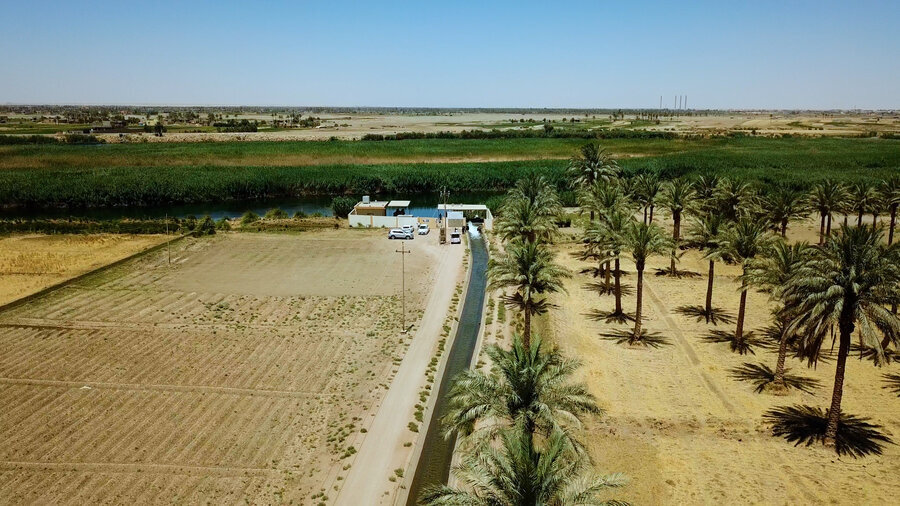
IRAQ
In Iraq, WFP is supporting conflict-affected and displaced Iraqis who are missing essential civil documents necessary to benefit from the national social safety net. In 2023, the EU-funded cash assistance provided by WFP helped provide temporary support for households involved in programmes assisting their access to civil documentation. Cash provides the power of choice and allows families exposed to vulnerabilities — including lack of key documents — to pick what they need most to get by. Additionally, WFP continued to advocate for the prioritization and inclusion of crisis-affected populations in national protection mechanisms.
BANGLADESH
Together with the EU, WFP continued to provide technical support in policy, programming, and system enhancement to the Government of Bangladesh in 2023. Our collaboration improved the nationwide production and distribution of fortified rice, reaching 14.7 million beneficiaries indirectly. It was made possible thanks to WFP’s support for two key social protection programmes: Integrated Risk Management (IRM) and Shock-Responsive Social Protection (SRSP), which strengthened the nation’s disaster response and made it more resilient.

Humanitarian Transport and Logistics
UN HUMANITARIAN AIR SERVICE
The United Nations Humanitarian Air Service (UNHAS), managed by the World Food Programme, offers reliable, cost-efficient and effective passenger and light cargo transport for the wider humanitarian community to and from areas of crisis and intervention. It is the only humanitarian air service that gives equal access to all humanitarian entities.
Support from donors like the EU — which in 2023 was the second-highest donor to UNHAS worldwide — remains vital to keep the service running. Despite funding shortages posing a threat to the future of the air service in places where it’s needed most, the service is steadfastly delivering on its promise to connect humanitarians with hard-to-reach areas.
Twenty years after WFP was first charged to manage UNHAS operations, the fleet consists of 130-plus aircraft fleet delivering lifesaving assistance in 21 countries across three continents. On any given day, some 60 UNHAS planes and helicopters crisscross the skies, ensuring vital assistance gets to the neediest communities. Last year alone, UNHAS flew more than 385,000 humanitarian workers from 600 organizations, along with 4,500 tons of relief cargo to places often too remote or conflict-torn for its commercial counterparts.
EU HUMANITARIAN AID FLIGHTS
The EU also supported WFP with its EU Humanitarian Aid Flights (HAF) through the European Humanitarian Response Capacity (EHRC). From March to December, WFP was able to implement the EU HAF services utilising the WFP-managed UNHAS capacities. These EU flights facilitated key access through humanitarian air transport services to populations in need of assistance, especially in hard-to-reach areas where no surface transport is suitable.
Following a coordinated approach that ensures complementarity between UNHAS and EU-HAF services, the collaboration transported over 230,000 humanitarians across Burkina Faso, the Democratic Republic of the Congo, Kenya, Madagascar, and Mali.
The EU HAF project is flexible and agile in responding to changing environments in protracted settings, and will continually make the adjustments needed for dedicated, safe, and cost-effective air transport in support of EU-funded humanitarian projects in existing or new operational settings.
UN HUMANITARIAN RESPONSE DEPOT
The EHRC also supported the United Nations Humanitarian Response Depot (UNHRD), which is a humanitarian platform that provides supply chain services through a global network of hubs. These hubs are used to stockpile essential supplies to allow the humanitarian community to respond quickly and effectively to people in need.
In 2023, the EU established new regional humanitarian stockpiles at UNHRD hubs in Brindisi, Dubai and Kuala Lumpur. The EU makes these stockpiled items – which include kits for providing emergency shelter, hygiene kits, water and sanitation items and equipment such as collapsible tanks – available free of charge and facilitates their air transport for the benefit of the wider humanitarian partner community.
In 2023, UNHRD managed 35 flights and air rotations by the EU dispatching some 803 mt of relief items, health supplies and equipment to emergency responses in Afghanistan, Chad, the Democratic Republic of the Congo, Gaza, Nepal, Sudan, Syria and Türkiye.
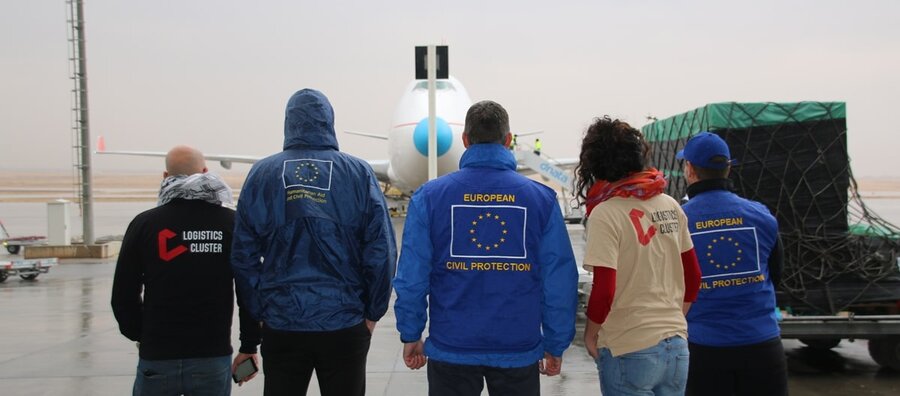
Environmental Sustainability in Humanitarian Logistics
The Logistics Cluster, which is led by the World Food Programme, supports the coordination process in an emergency or crisis response to ensure that humanitarian organisations work together to identify logistics needs and gaps.
Thanks to funding from donors like the EU, the Cluster is working on developing and disseminating guidance and training to embed circular economy principles into the humanitarian supply chain, as well as create practical and flexible solutions to bring about long-lasting improvements in the environmental outcomes of humanitarian actions.
EU support to the Waste Management Measuring, Reverse Logistics, Environmentally Sustainable Procurement and Transport, and Circular Economy (WREC) project allows WFP and the Logistics Cluster to focus on the two most significant environmental impacts from humanitarian logistics: waste created by humanitarian activities – such as packaging or end-of-life items – and hazardous and non-hazardous waste resulting from support functions – such waste from fleets or pollution from transport.